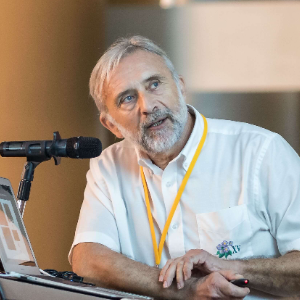Title : Plants and radionuclides: from hazard to biotechnology
Abstract:
Plant nutrition takes off various minerals from the soils; these minerals are necessary to growth but in some cases these minerals are radioisotopes of essential elements but may be also exotic elements derived from industrial activities. The biological responses of plants to radioisotopes will be analysed, from the absorption in roots, the translocation to upper parts in stalks and leaves and their accumulation or storage. The limits of toxicological concentrations will be also discussed. Examples will be developed at a physiological, biochemical and genetic levels concerning Uranium, when this element is derived from uranium ore-bearing sedimentary bedrock, and Cesium (mainly 137Cs) as one of the element released after a nuclear accident. The importance of their bioavailability in the soil is a driven parameter for their impact on plants and the interactions in particular with phosphate and potassium will be described. The biological responses of plants to these elements have generated several biotechnological applications, so-called phytoremediation. The objectives are to manage their residual radioactive concentration in soils or in liquid medium, in order to extract them from the environment through depleting the soil concentration, or at the opposite to repress their accumulation generating edible crops so-called “safe food”. An overview of the properties of various crops to radioactive elements will be presented. Finally, some economical applications will be considered.
Take Away Notes:
• Nuclear industry is very sensitive to its impact on environment, not only in case of accident. The increasing production of nuclear energy on the world market will generate increasing volume of wastes that will have to be treated. Dismantling and decommissioning of closing reactors should reinforce the cleaning of the local environment, so that soft technics are promising.
• The presentation should provide practical knowledge and experimental solutions to the reclamation of contaminated sites, as well as opportunities of collaboration.

